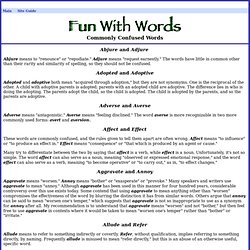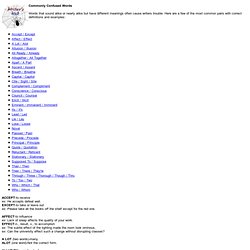

5 Sayings Most People Get Wrong. 24 Things You Might Be Saying Wrong. Words on Words: 5 Timelessly Stimulating Books About Language. By Maria Popova What single Chinese men have to do with evolution and insults from Virginia Woolf.

We love, love, love words and language. And what better way to celebrate them than through the written word itself? Today, we turn to five of our favorite books on language, spanning the entire spectrum from serious science to serious entertainment value. Harvard’s Steven Pinker is easily the world’s most prominent and prolific psycholinguist, whose multi-faceted work draws on visual cognition, evolutionary science, developmental psychology and computational theory of mind to explain the origin and function of language. Sample The Stuff of Thought with Pinker’s fantastic 2007 TED talk: Every time I read Pride and Prejudice, I want to dig her up and hit her over the skull with her own shin-bone.” ~ Mark Twain on Jane Austen It’s a new low for actresses when you have to wonder what’s between her ears instead of her legs.” ~ Katherine Hepburn on Sharon Stone He was a great friend of mine. Word List of Commonly Confused Words at Dictionary.
Fun With Words: Commonly Confused Words. Abjure and Adjure Abjure means to "renounce" or "repudiate.

" Adjure means "request earnestly. " The words have little in common other than their rarity and similarity of spelling, so they should not be confused. Adopted and Adoptive Adopted and adoptive both mean "acquired through adoption," but they are not synomyms. Adverse and Averse Adverse means "antagonistic. " Affect and Effect These words are commonly confused, and the rules given to tell them apart are often wrong.
Many try to differentiate between the two by saying that affect is a verb, while effect is a noun. Aggravate and Annoy Aggravate means "worsen. " Allude and Refer Allude means to refer to something indirectly or covertly. Anxious and Eager Anxious means "troubled" or "worried. " Chafe and Chaff Chafe means "to make sore by rubbing" or "irritate or annoy" or "become annoyed. " Compliment and Complement Compliment is a "remark of praise. " Continual and Continuous Deserts and Desserts Discomfort and Discomfit Discrete and Discreet. Commonly Confused Words. Commonly Confused Words Words that sound alike or nearly alike but have different meanings often cause writers trouble.

Here are a few of the most common pairs with correct definitions and examples: ACCEPT-to receive ex: He accepts defeat well. EXCEPT-to take or leave out ex: Please take all the books off the shelf except for the red one. AFFECT-to influence ex: Lack of sleep affects the quality of your work. A LOT (two words)-many. ALLUSION-an indirect reference ex:The professor made an allusion to Virginia Woolf's work. ALL READY-prepared ex: Dinner was all ready when the guests arrived. ALTOGETHER-entirely ex: Altogether, I thought that the student's presentation was well planned. APART-to be separated ex: The chain-link fence kept the angry dogs apart. ASCENT- climb ex: The plane's ascent made my ears pop.
BREATH-noun, air inhaled or exhaled ex: You could see his breath in the cold air. CAPITAL-seat of government. LEAD-noun, a type of metal ex: Is that pipe made of lead? What is the Italian word for garbage?